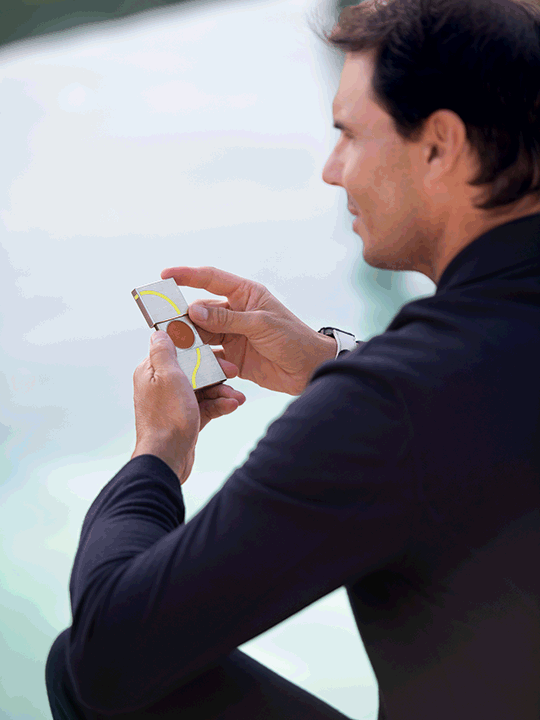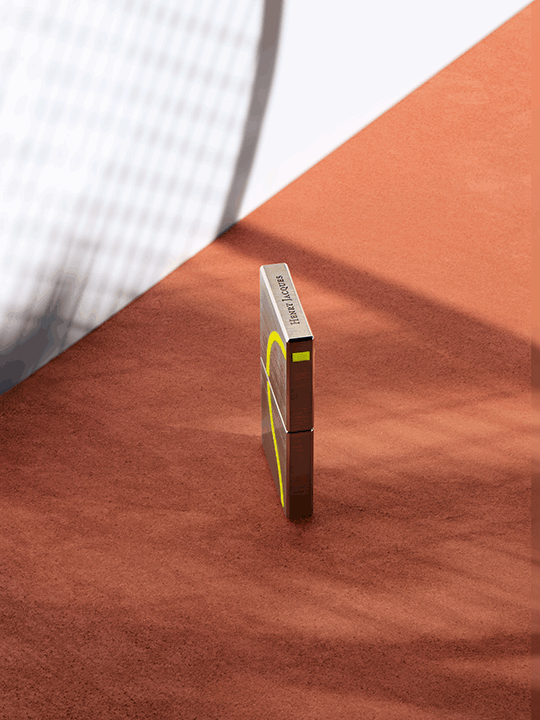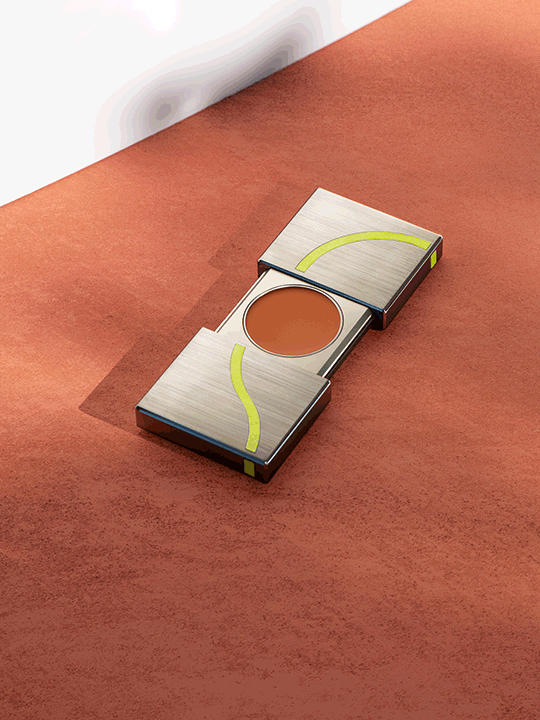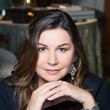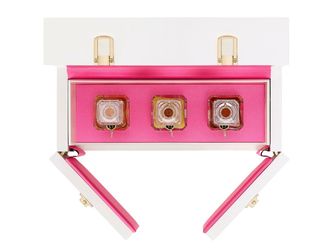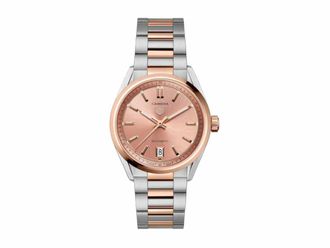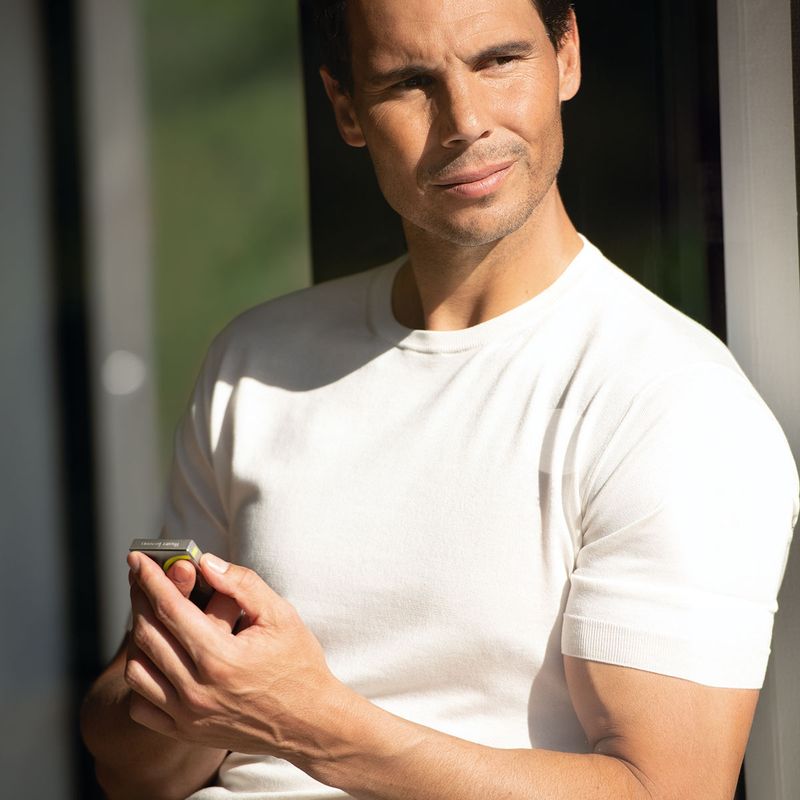
Remaining a family-owned business at its heart, Henry Jacques continues to craft the most exceptional ‘Les Sur-Mesures’ scents of all time, by virtue of its immense -‘savoir-faire’ and the combination of traditional methods with innovative approaches, they have been able to create some of the finest fragrances in the world. Originally a custom fragrance house in France, the Maison has developed a vast range of perfumes that embody its philosophy of luxurious living and an unwavering pursuit of perfection that has been held for almost half a century. The Kurator caught up with the CEO, Anne-Lise Cremona and explored the Maison’s novelties and delved into the archives of the Parisian perfumery.
Tell us more about your collaboration with Rafael Nadal
Rafael is one of those personalities we wanted to create a bespoke fragrance for, he’s a great champion that everybody has heard of, but how well do we really know him? How well do we really know his wife Maria? What makes it more interesting to me is that these are real people who we get to know through their bespoke perfumes. The ‘In All Intimacy’ collection is truly bespoke, with us going through the entire process with the client first, the couple wanted their own bespoke fragrances which we crafted for them. And then, we decided to make these creations available to others, which is the story of ‘In All Intimacy,’ a bespoke collection made for a public figure who then wanted to share it with the world. Now, we have taken the partnership with the duo one step further with the launch of a limited edition Clic-Clac designed for Nadal and which perfectly reflects Henry Jacques’ DNA, an inspiring blend of heritage and innovation.
Let’s go back to your childhood when you were first introduced to the world of fragrances by your father and you watched him make those perfumes at home.
Childhood is a very important phase in my life. My father loved to talk, he would talk about perfumes during both lunch and dinner. He was fascinated by raw materials and essences, and he was always telling stories about them. As a result, my two sisters and I were brought into this world of fragrance. It was fascinating seeing the growth of the laboratory, which is the heart of Henry Jacques today, and what I didn’t realise at the time was how special having an in-house laboratory was, something that has disappeared given the size of the industry today.
So, if I go back to my childhood, of course, this lab was really the heart of the brand, especially since building a laboratory takes a lot of time because each component has a particular use, so when you work with over 1,200 components, you have to know the story behind each one of them. Sometimes I feel that you need several lifetimes to build such a thing, and it’s the most precious asset.
What is your most cherished perfume-related memory?
It comes from my mother as my father travelled frequently, however, my mother was always present. They used to buy a lot of roses from Bulgaria at the time, and she gave us tiny rosebuds packed in handmade wooden boxes. They were extremely valuable to me. Of course, she herself was an inspiration, I admired her style and her taste in perfume. As for my father, I recall his stories from his travels, many of which are about the Middle East, particularly how he used to create bespoke perfumes for prominent families in the region. I still remember my first trip to Dubai, it was with my father when I was 16, and it was one of the most incredible experiences of my life. I met many locals and was impressed by their traditions, national dresses, as well as their modernity and fabulous cars. To me, the contrast was surreal but extraordinary. And, thankfully, the traditions have been preserved because they are so valuable.
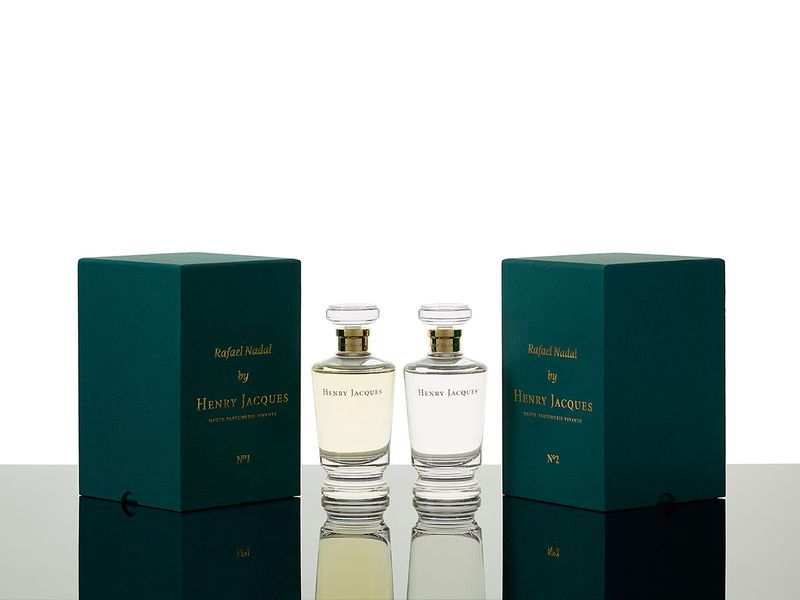
How do you define the Henry Jacques Maison’s values through this journey?
My father would always tell us stories about his different experiences. He was an avid traveller who enjoyed meeting new people, he would spend time with kings and rulers, but he would also hang out with fishermen, which he enjoyed. When I went to an old souk in Oman a few years ago, all the elderly people recognised me because of him. He would stop by their shops and talk to them about all kinds of topics; I’m not sure how he did it. My parents instilled in me a sense of what is beautiful, and to them, beautiful things are not always valuable in terms of monetary value; they can be very simple or they can be very sophisticated. That’s why they couldn’t accept the turn the industry took in the 1990s when perfume--making started losing its nobility. And what I admired most about my father was his integrity, he had the trust of many people and he couldn’t let them down.
Tell us more about those experiences when your father created bespoke fragrances for the late Sheikh Zayed and Sultan Qaboos.
By holding onto these values, my father gained the trust of some very important people, particularly Sheikh Zayed, for whom we created over a hundred perfumes, he would come to my father whenever he needed something special. The story actually began in Dubai, I remember my father taking me and my sister to an exhibition, and I recall that one of our perfumes caught Sheikha Alia’s eye, and she sent her driver to pick it up. And that was the beginning of it all because she gifted that perfume to Sultan Qaboos, who also started ordering from us, and this is how the story started, and it is probably the reason why I am so attached to Dubai.
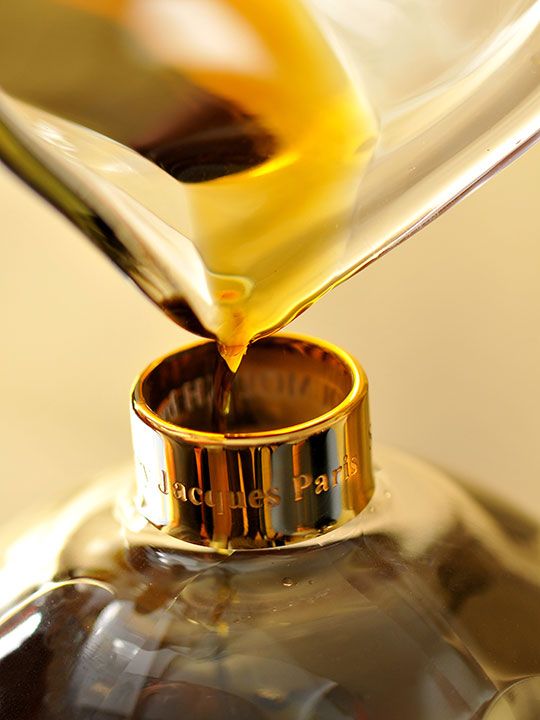
How did your father cater to his client’s needs in the region?
The key to this relationship is respect. He was always excited to learn more about their tastes; he loved oud, for example. And I recall a few years ago when brands began talking about oud and using it in their fragrances, we had been using it for decades. At first, my father made collections that were perhaps not entirely to their liking, but he quickly learned how to get it right. And I remember sending collections to Sultan Qaboos who once wrote a note on a piece of paper that said, “Keep creating this way, I will always be there with you.” To be complimented by Sultan Qaboos was a big deal for us. I’d say we learned from him.
You have your Classics that you sell in your boutiques, but you also have a very special customer experience where you create bespoke perfumes for certain clients.
We opened our first boutique in 2014 at Harrod’s because they wanted to open a ‘salon de parfum’, so we entered the retail world with our entirely boutique concept. It was a completely new experience for both parties; the most difficult part at the time was coming up with a ‘pret-a-porter’ collection. ‘Les Classiques’ collection was inspired by our history; it is actually all bespoke fragrances. All of the perfumes in our boutiques are based on bespoke perfumes, which are extremely valuable to me because they are highly complex formulas with many different layers and depths. Our new collections, ‘Les Exceptions’, on the other hand, consist of new creations based on our insight and experience that I always want to draw from. It was difficult to reduce the number from over three thousand bespoke creations to fifty, but we now have close to eighty different fragrances. The next step was to bring our bespoke experience to the boutiques.
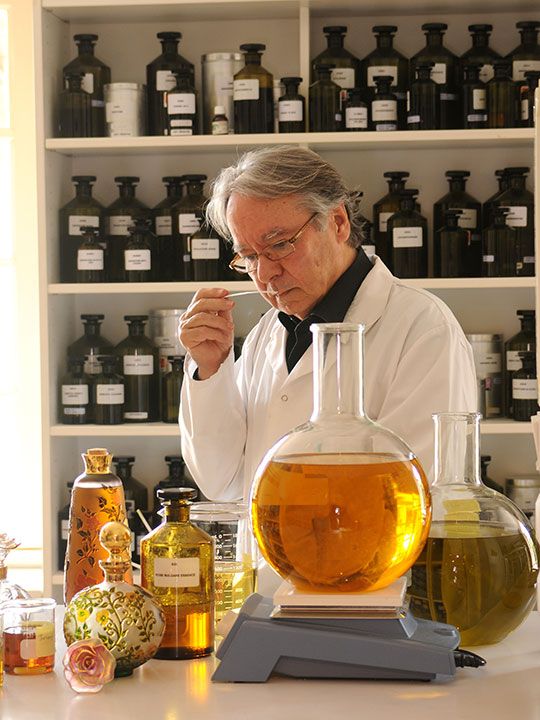
How do people in this region receive this experience?
Very well, indeed. It’s interesting because we had a bespoke order that I just approved last week which I loved, it was for a Japanese lady in Dubai. We have actually just opened a boutique in Ginza, Japan too; but this lady lives in Dubai. We have a bespoke service here and in Asia. And I must congratulate the team because they are able to translate sentiments into scents and find emotions through the senses.
How do you establish that bond with the client?
We have a trainer who travels the world to train the team. We worked very hard on this endeavour. What’s great about this is that we own the boutiques, and this is our own team. We’re more like a family; our team members grow with us, they know each other, and the majority of them have been to our headquarters in Paris. This is how I perceive luxury. The way it works is that the team sends us a consultation brief, and then we have a committee, of which I am a member. We have many discussions about the perfume and do several trials before my final approval. Then we send a sample to the client and continue to work on it together.
We talked about the history of the house and delved into its archives, what is your vision for the future of the Maison?
Because it’s a heritage brand, I spend a lot of time emphasising our traditions. Going back to Haute Couture, what distinguishes a brand is its ability to transition from traditional to modern without forgoing the traditions. It is a difficult exercise that very few brands succeed in because, in order to do so, you have to have a very solid history and strong roots. Sometimes it can be easier to just start a brand from scratch. Going back to my thought process when creating the ‘In All Intimacy’ collection, I became frustrated because today everyone talks about ‘bespoke’ to the point where it seems to be common, which it is not; it’s a real creative journey. So I thought we should share more about how we make bespoke perfumes as it is a huge part of our history, and we’ve been doing it for forty years. Many clients come to us after having had bad experiences with ‘bespoke’ perfumes elsewhere, so I really wanted to focus on this, and to me, ‘In All Intimacy’ is a bespoke collection. We’ve had many personalities work with us on bespoke fragrances over the years, but I got to thinking: what if one of our bespoke clients wanted to share their fragrance with the world? When I re-launched the brand I thought that could be a fantastic way to illustrate the entire adventure, which would be very beneficial for us as well as them, and this is how it started.
And then we created ‘In All Intimacy’ that, in fact, speaks for itself. Through the bespoke process, we are exposed to authentic representations of people that perhaps have had great achievements but shy away from revealing their inner selves, this is intimacy.


